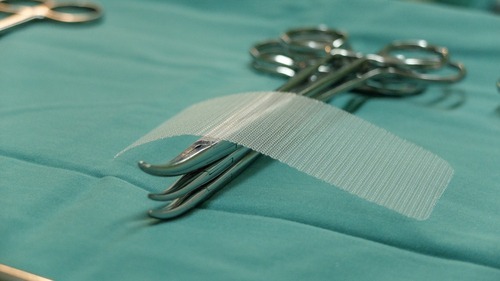
Hernia repair surgery is one of the most common surgeries in the U.S., but injuries have been sustained due to hernia mesh used in these operations. When the mesh is defective and causes injuries, the patient has the right to sue for compensatory damages from the responsible party — usually the manufacturer.
When you recover from hernia mesh surgery, you can anticipate some soreness. Usually within a week, people can return to their lives at 50 percent normal capacity. It can take up to four to six weeks to recover 95 percent normal capacity. 1 Sometimes though, patients suffer serious side effects do not recover. And sometimes patients do not recover because the mesh was defective. Hernia mesh revision surgery or removal of the hernia mesh device altogether is often required.
When the mesh is defective, complications can arise and injuries can result. If complications arose after your surgery, you likely have questions. At Shouse Law Group, we are here to inform our clients about the issues pertaining to hernia mesh lawsuits. On this and related pages, you will learn about:
- 1. What are the complications of hernia mesh?
- 2. When should you realize something is wrong?
- 3. Who is responsible for the injuries?
- 4. When should you contact a personal injury attorney?

1. What are the complications of hernia mesh?
The complications that are the focus of past and current lawsuits (causes of hernia mesh failure) are many:
- Infection, when bacteria, viruses, or other microbes invade the surgery area and overcome the body’s natural defenses.
- Mesh rejection, when the body rejects the mesh.
- Mesh migration, when implant detaches and moves through the abdomen or elsewhere.
- Mesh contraction, when the implant collapses or shrinks so that it no longer covers the hernia location.
- Bowel or other organ perforation, where implant pokes a hole in the bowel or another nearby organ, depending on where the mesh was placed.
- Bowel obstruction, where mesh blocks the bowel.
- Erosion of the impant.
- Adhesion, which is scar-like tissue that sticks other tissue together.
- Recurrence of the hernia even after the mesh repair surgery.
- Tearing or Ripping of the Hernia Mesh Implant.
- Cancer from infected mesh.
2. When should you realize something is wrong?
Something may be wrong if you are not recovering as you should. Any of the following can be part of the signs and symptoms of hernia mesh failure:
- Severe pain in and around the place of the repaired hernia
- Continued constipation or diarrhea
- Unexplained fevers and sweating
- Unusual headaches and nausea
- Unexplained dental problems.
If these or any other unusual symptoms occur, you should contact your doctor immediately. He or she will make sure they are not complications from the surgery or a result of the hernia mesh used in the surgery. If these symptoms are derived from the hernia repair surgery, the doctor will advise you what the next step should be. Sometimes that requires hernia mesh revision surgery. And sometimes that requires a lawsuit.
3. Who is responsible for the injuries?
When a hernia mesh is defective and that defect is the cause of your injury, then the most likely responsible party is the manufacturer. Many of these hernia mesh devices have been recalled. Manufacturers in the U.S. market include:
- Atrium Medical Corporation
- B. Braun Melsungen
- C.R. Bard
- Ethicon
- Gore Medical
- LifeCell Corporation
- Medtronic.
4. When should you contact a personal injury attorney?
Whenever you have questions about your surgery and want legal counsel, feel free to contact a personal injury attorney for a hernia mesh case evaluation. If you have already experienced unusual or painful symptoms after your hernia repair surgery and spoke with your doctor about it, you should then contact our office. We will review your case thoroughly and advise you of your options. The most important thing is to ensure your health, safety, and quality of life. The second most important thing is to seek compensation for harm done to you due to the fault of another entity.
References
- Jason Forbes, MD, Nick Fry, MD, Hamish Hwang, MD, FRCSC, Ahmer A. Karimuddin, MD FRCSC. “Timing of return to work after hernia repair: Recommendations based on a literature review.” BCMJ, Vol. 54, No. 7, September 2012, page(s) 341-345.
